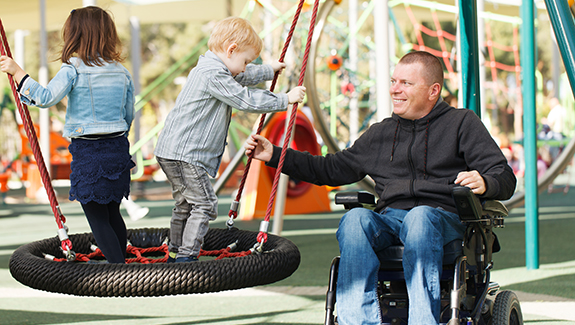Top Catheterization Concerns and What to Do About Them
Do you have questions and concerns about catheterization, such as what to do while taking a trip? Explore some common issues, along with tips for solving them.

Learn how to solve common catheter issues.
If you manage your bladder disorder symptoms with a catheter, it’s possible that some issues may arise. It can be helpful to learn about some common challenges and their potential solutions.
Urinary tract infections (UTIs)
It’s important to monitor yourself for signs of a urinary tract infection (UTI) and to contact your healthcare professional immediately if they occur. These symptoms include:
- More frequent urination than normal
- Leakage of urine between normal voiding or catheterization
- Increased muscle spasms (if you have a spinal cord injury)
- Fever
- Back pain
- Milky, cloudy, or dark colored urine
- Foul smelling urine
Amount of fluids to consume
If you’re catheterizing, you’re likely concerned about how much fluid you should drink. In general, it is recommended that adults drink eight to 10 glasses of fluid each day. Your individual needs, however, may be different. Consider reducing your consumption of caffeinated drinks if you notice negative effects on your bladder. Also, be aware that alcohol may make your bladder fill more often.
Problems passing the catheter into your bladder
If you cannot pass the catheter, this is usually due to a spasm at the sphincter. Here are some tips that may help:
- Relax, take a deep breath, or cough
- Hold the catheter gently against the closed sphincter. It will usually open after a few seconds.
- Never force the catheter, since this can cause injury to the urethra.
If you cannot pass the catheter after three or four tries, call your healthcare provider or go to the accident or emergency room. He or she will have special catheters available to catheterize you. If this problem occurs often, you may need to use a catheter with a bent or Coudé/Tiemann tip.
Large amounts of urine when you catheterize at night
During the day when you are sitting, fluid collects in your legs. You may notice that your feet and ankles become swollen. When you lie down at night, all of this fluid enters your blood stream, is filtered through your kidneys, and fills up your bladder. To reduce large amounts of fluid you can try:
- Lying down for an hour during the day, preferably in the afternoon
- Catheterizing before going to bed for the night
- Catheterizing in the middle of the night
- Limiting your fluid intake after 6:00 pm
Catheterizing while traveling
Unfortunately, many planes, buses, and trains do not have wheelchair accessible bathrooms. Below are a few tips that may make traveling with a catheter easier:
- If access to a bathroom is an issue, catheterize under a jacket, a sweater, or a small blanket over your lap using a closed-system catheter
- Some people choose to insert an indwelling catheter for trips and then remove it as soon as possible
- For air travel, be sure to carry plenty of catheter supplies in your carry-on luggage. Most airlines will allow an extra carry-on bag for medical equipment.
- Some airlines designate the first-class toilet for people with disabilities. Ask about this when making your travel arrangements.
Catheterizing during pregnancy
If you’re expecting or planning to become pregnant, you may wonder if you can still catheterize during your pregnancy. Your healthcare professional will advise you as your pregnancy progresses, but intermittent catheterization can be safe during pregnancy.



